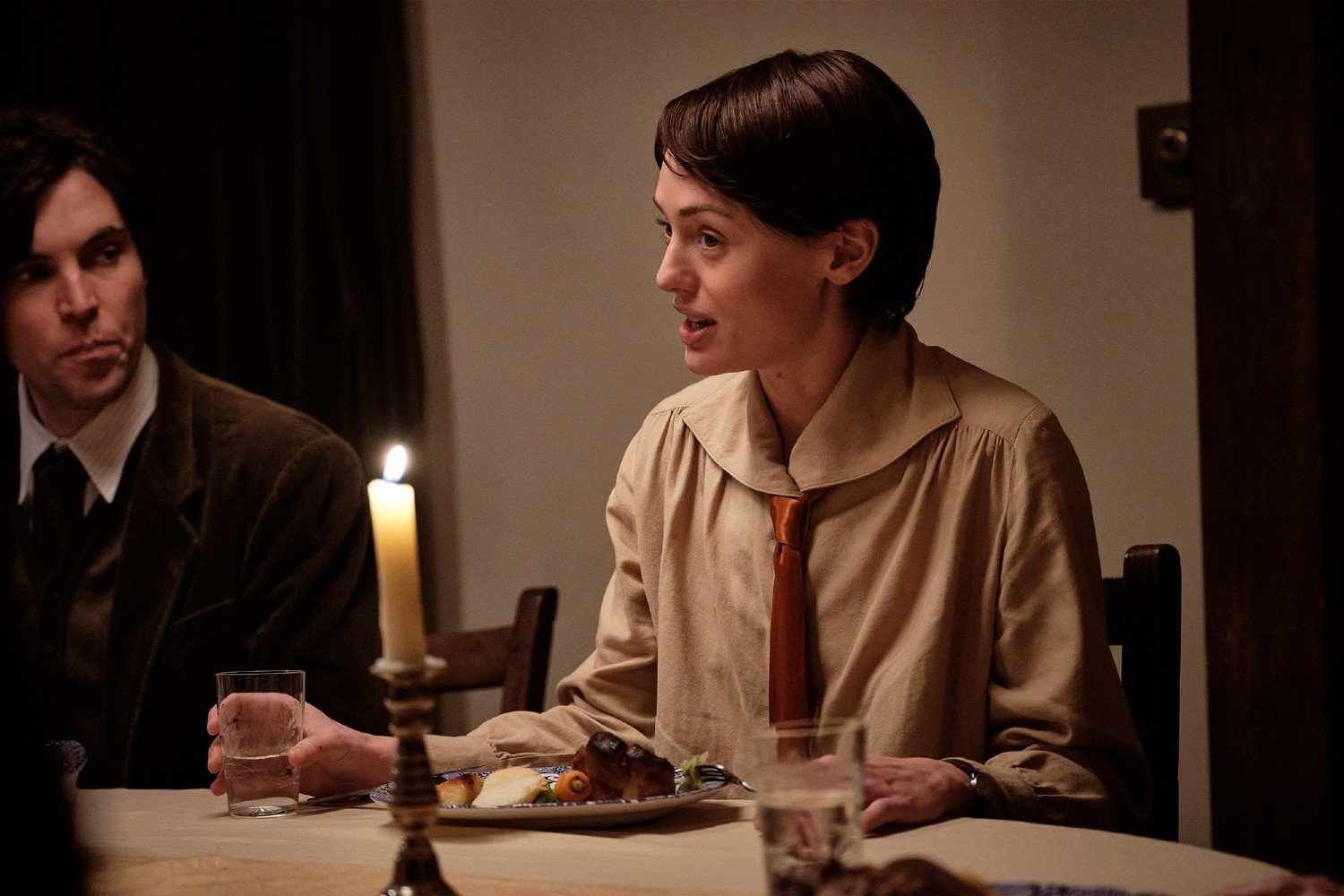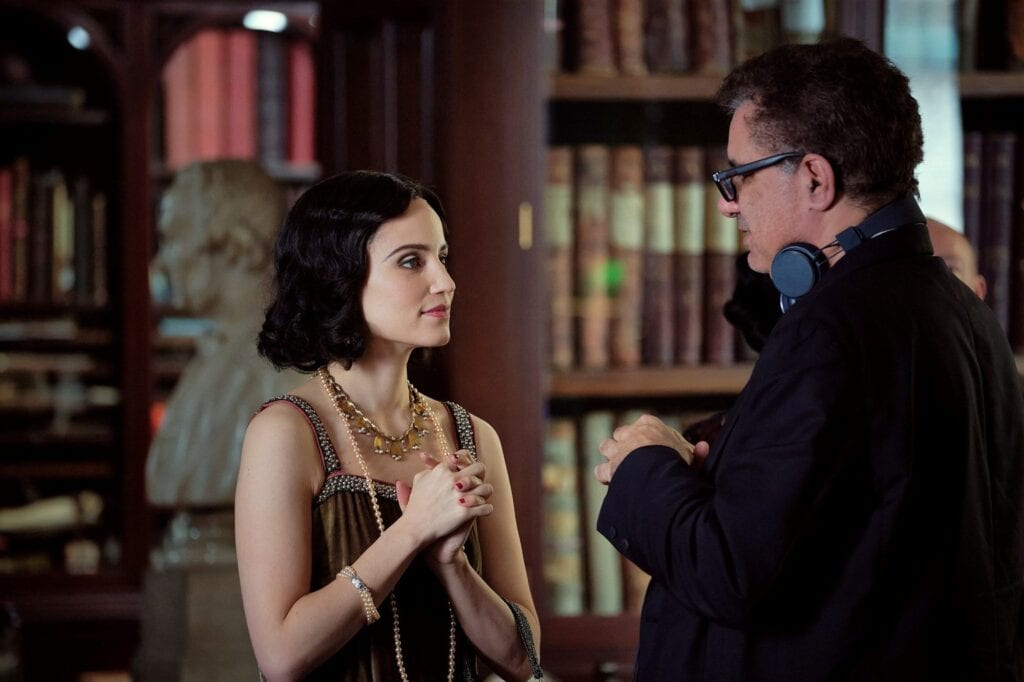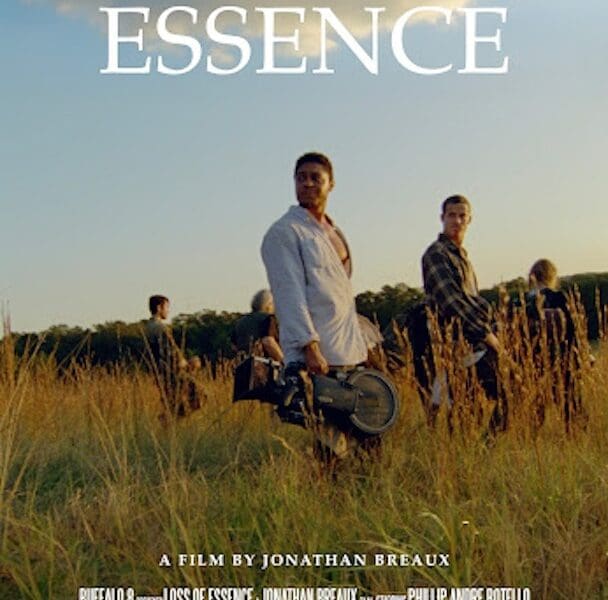
Poetry in motion: Get to know filmmaker William Nunez
William Nunez is a veteran of film and TV. He’s dabbled in nearly every aspect of the filmmaking process, and his latest release, the historical drama The Laureate, may be his finest work to date. The film details the tense relationship between British war poet Robert Graves and the brilliant but unstable American writer, Laura Riding. As the two careen from resentment to romance, their writing changes to reflect their development.
Nunez, a graduate from NYU film school, directed The Laureate in such a way that it will appeal to period-drama lovers and general audiences alike. Film Daily was lucky enough to talk with William Nunez about his lengthy career, his creative process, and his favorite film of all time.

Can you tell us about your history as a filmmaker?
After I graduated from NYU film school, I started my career directing commercials for both local and national sports before transitioning into news and documentary directing.
I have produced, written, and directed short films that have screened in 24 countries and been in competition in film festivals such as Cannes, Rio de Janeiro, Ghent, and Cinequest, among others.
What drew you to filmmaking?
I was drawn to a visual art form that shapes an idea that you have nurtured and then through collaboration with others, mold the idea into a story that’s worth telling. I think film is the best storytelling platform still going.
Tell us about your career before you found filmmaking.
I worked in the news industry as a television news director. I would direct two to three hours of live news daily. It does help you with filmmaking by learning to deal with crews, talent, and time pressures.
Could you describe your latest project The Laureate?
The Laureate is a story of three people at a crossroads in their personal and professional lives trying to support each other through their demons and the consequences of the decision they make or have made. This is told through the life story of British poet Robert Graves who was suffering not only with marital and financial problems but PTSD which he has not completely shaken since the end of the First World War.
Though it may seem like it is a period piece, I would like to think that the film feels modern but at the same time it’s old fashioned filmmaking in a good way.
Where did the concept for The Laureate come from?
Robert Graves was always my favorite writer and when I read a biography of his and learned of his life with Laura Riding and his evolution from war poet to love poet, I knew it was a movie I wanted to make.
The main concept I used to portray Robert as a troubled soul who needed the conflict between his wife and his muse was the PTSD he suffered for most of his life because of his experiences from the First World War.

You only had 22 days to shoot The Laureate, what was one of the greatest challenges you faced during production?
Of course, making sure we shot everything that was in the schedule but at the same time making time for the actors to explore the scene or scenes as well giving the key departments ample time to set up. It was sometimes a bit of a scramble towards the end of the day and not making sure we ran into overtime.
The most challenging part of the shoot was having only two days to film at the liberal arts club in London. The two days consisted of shooting 16 pages of script. It was intense but I must give it to the crew, who worked to the bone to get everything done and set up. The scenes were terrific.
Is there anything you’d like viewers to know about The Laureate before watching?
It’s a love story told in the manner of love stories of films past. The preconceived notion of a story about a writer from the 1920’s being an art film is irrelevant to the themes of love, trust, betrayal, devotion and jealousy. However, if after watching the film, someone looks up Robert Graves or reads a poem or novel by him, that’s great as well.
Can you walk us through your creative process?
I usually do most of my writing in the morning, and revise in the afternoon the previous days’ work. During prep, I am shot listing and going over photographs and research materials with my department heads. Usually at night, I revise some more. I am always tweaking the script based on conversations with my cast and heads of departments. They inspire me to keep improving the story by what they bring to the table.
On set, I like to have a private discussion with the cast involved in the scene, to discuss the intention of that scene, blocking, and taking input from the actors. Once that’s complete, I call a crew show to show them how [the] scene will play out with the actors, then I go to my DOP and first AD to discuss my coverage and lenses etc.
During post, I like my editor to do an assembly of the scene. I will come back with notes and there is a back and forth. In the early part of the editing process, I have preliminary talks with the colorist, VFX and sound teams to inform them how the edit is going, my ideas for those departments and get them thinking even if they are not on the clock for a few weeks yet.
Same goes with the composer because even though they know I will use a temp score; I do not want them surprised by a musical direction once they get a cut to score.
What is your filmmaking mission? Name the most important thing you want viewers to experience when watching your movies.
To find stories that I find interesting and make sure I construct them in a way that is interesting to an audience.
You are very hands-on with your projects. How hard is it wearing all the hats?
Not very hard. If you are organized and can delegate, then it does not overwhelm you. I strongly believe as a filmmaker, you need to have a strong sense of the business end of the process, and make sure all the contracts are understood. I also like to get involved in the marketing and distribution part as well. I don’t mean to sound too crass but either you care, or you don’t, and the filmmaker’s job does not end when you deliver the film.

What part of filmmaking do you geek out about the most?
Anything and everything that is new.
I like the latest editing platforms and testing out and using [the] latest lenses for my shoots.
Do you have any advice for people considering a filmmaking career?
Make films! With iPhones, and iMovies there is nothing stopping people from building their storytelling muscles by making shorts. Perhaps only yourself will see them, but you will gain the understanding of pacing, story, performance, and composition.
Watch as many films as possible. You can even [watch] less successful ones, so you can ask questions about why certain decisions were made. Finally, read about the business and legal side of the business as well.
Have you worked with mentors in the past? How would you recommend people go about finding them?
Finding mentors to work is easier said than done. If you are lucky to have one as you are working, then you are fortunate. My mentors came from the classroom. I sought my professor’s advice and felt they had my best interest at heart. However, I would say that there are plenty of opportunities to network more than ever before, and just observing, speaking to, and asking for advice can give you a gateway to your career.
Are you able to tell us about any upcoming projects you have? What are they?
I am working on a documentary about 1950s Hollywood which I hope to complete in 2021, and I am just about done with a script I am writing and developing called Death Benefits which is different from The Laureate. Finally, [I am] working with bestselling author Elizabeth Haynes on a script based on one of her novels.
Who or what would you say are your current filmmaking influences?
I used to love to drop Bong Joon-ho to my non-film friends, but Parasite changed that. I was mortified to have to pick between Parasite and Pain and Glory for best foreign film as I loved both.
Currently, filmmaking influences are really filmmakers still working today such as Alexander Payne and Whit Stillman. To me they are the gold standard for current writer directors and how they use [the] language of the written page to create a filmic language of their own.

What kind of music do you like to listen to while you are writing?
Depends on what I am writing. Mostly classical but some rock songs can make its way into my playlist.
Would you ever consider working on an episodic series?
Absolutely. A good story if needed to be told in episodic form will always interest me. The most important thing is telling a good story in a strong presentable form no matter the platform.
What is your favorite film of all time, and what did you learn from it?
I am asked that all the time, I have quite a few so I tend to follow filmmakers and their career progressions like Orson Welles, Stanley Kubrick, Preston Sturges, the usual.
However, if there is a film from the last twenty years, I would say a favorite would be Talk to Her (2002) from Pedro Almodóvar. I saw that film as a perfect combination of writing, acting, directing, production design, cinematography, and music. To me it is a perfect film.
And finally, a fun one, cats or dogs?
Ah, a good one. I love both but if I had to go with one, I would say cats.







